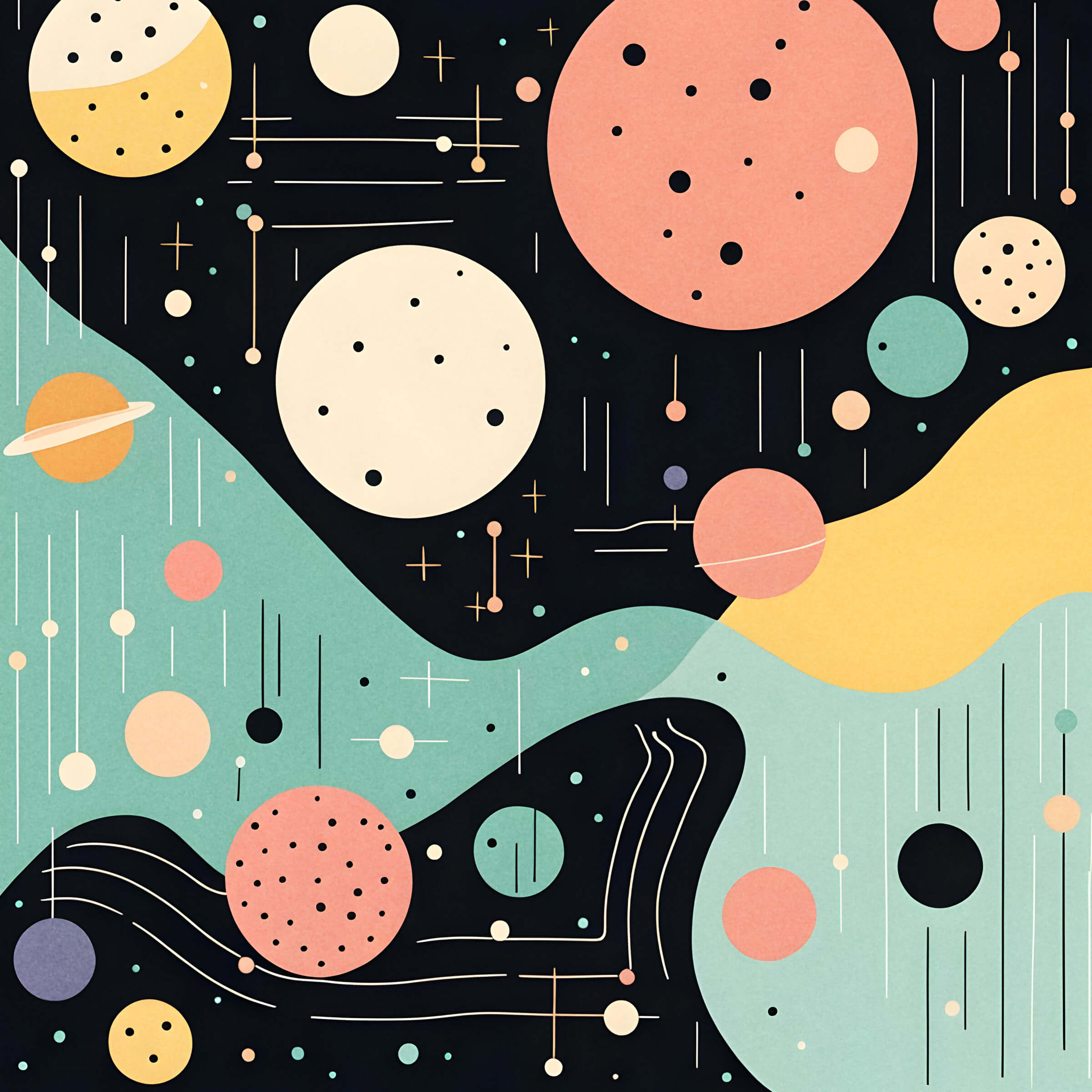
Fun Facts About Moons You Won't Believe
For a long time, we humans thought there was just one moon.
That's why we called that puppy orbiting our planet THE moon.
It wasn't until 1610 (!!!) that Galileo discovered there were additional moons in our solar system, finding a few orbiting Jupiter.
This shocked many people; guess they weren't on a first-name basis with science.
Today, we know way more about the moons in our solar system. Here are 14 surprising moon facts comin' at ya!
1. At least 80 moons orbit the planet Jupiter.
Galileo discovered Europa and Io.
Later astronomers have found more of Jupiter's moons—so many they can't keep up, apparently; only 56 of these 80 moons have been named so far.
That's your cue to shout from any and all (metaphorical) rooftops that scientists are procrastinators, too!
2. We only ever see one side of the Moon.
The Moon has a synchronous rotation.
That means we never get a chance to see its back side.
Don't snicker about the dark side of the Moon! Your grandparents loved that Pink Floyd album!
3. Mercury and Venus are the only two planets in our solar system that do not have moons.
Those are some lonely planets.
Seriously, their only company is each other and the oppressive heat of the Sun. Yikes. Other planets have TOO MANY moons, like Jupiter and its 95 confirmed moons. Want to see more? Here's a fun fact infographic about the solar system and it's many moons.
4. The Moon is 27% the size of Earth.
This makes it the biggest satellite (or moon, if plain English is your jam) in relation to its host planet in our solar system by a massive margin.
Simply put, it's odd for space.
5. The Moon is the 5th largest moon in our solar system, and the 2nd densest.
The most dense moon is our old friend Io (currently under the steely grasp of Jupiter—possessive much?)
The largest is Ganymede, which is also under lock and key from Jupiter.
BTW, that beast Ganymede is freakin' huge, bigger than Mercury and the jilted ex-planet Pluto!
6. The footprints on the Moon from the NASA astronauts (circa Apollo 11) are expected to last for 100 million years.
That's assuming they are not covered up by a massive moon station someday.
7. The temperature of the Moon is, on average, 224 degrees Fahrenheit during the day and -243 degrees Fahrenheit at night.
Or, if your brain is wired to think in Celsius (good for you, champ!), that's a daytime temp of 106° and nighttime temp of -152°.
8. Two sports have been played on the Moon—golf and the javelin toss—both of which happened during 1971's Apollo 14 mission.
As far as sports go, those aren't really the most exciting.
Can we try kicking a futbol/soccer ball? Or maybe whacking something like a baseball or puck?
I'll talk to NASA about it.
9. The Moon is slowly drifting away from Earth at 3.8 cm per year, and will eventually escape its orbit (in a billion+ years).
Yep, EVENTUALLY, the Moon will escape Earth's protective grip.
If life is still thriving on the planet by then, it better have a backup plan.
10. The Moon has quakes just like Earth, only they are called moonquakes.
These can last up to a half hour but are much weaker than an earthquake.
I bet you're saying to yourself "well golly, I guess that makes sense."
If you think we're calling you a dork by saying that, haven't you ever heard of projection?
11. The Moon is so far from Earth that you could fit every planet in our solar system in between.
Its massive size (compared to Earth) is what lets it get away with this long-distance relationship.
12. Everyone weighs slightly less when the Moon is directly overhead. This is due to gravitational effects.
If you are a boxer or UFC fighter, keep that in mind the next time you step on the scale.
13. Our moon orbits the Earth every 27.32 days.
This is annoyingly not as perfect as we'd like.
It's also why moon phases seem to pop up at the most random of times on the ol' Gregorian calendar.
We can't just round to 28 days either. Precision matters and rounding doesn't work like that. Have you even taken a math class?
14. There's water on the Moon.
Yup. Delicious, life-sustaining water is already there.
This is from space stuff (some of which had frozen H2O) colliding with it for billions of years.
Most of this water is buried under the surface now, so it doesn't boil away during the day.
Guess as long as you're OK with a little nighttime drill, baby, drill, you can stay hydrated on the Moon.





